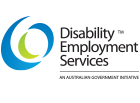
atWork Australia measures the wellbeing of Job Seekers in its inaugural Wellbeing Index
The wellbeing of job seekers is significantly lower than that of employed people and of particular concern are the 9.4% who rate their satisfaction with life at the lowest level, translating to about 60,000 people looking for work across Australia who are facing significant challenges with their mental health and wellbeing.
In an Australian first, atWork Australia has partnered with social impact measurement experts Huber Social to release the atWork Australia Job Seeker Wellbeing Index (the Index), which is the first national Index dedicated to examining the wellbeing of job seekers across a representative sample of Australians. It works to identify the needs of Australian job seekers that, when satisfied, will improve wellbeing, placing them in a better position to fulfil their potential, work towards finding sustainable work, and live a life they value.
Launching the atWork Australia inaugural Wellbeing Index, The Hon Luke Howarth, Federal Assistant Minister for Youth and Employment says, “The COVID-19 pandemic has resulted in the most severe global economic crisis since the great depression. As we emerge from lockdowns, the ability to bounce back and help people back into employment is more important than ever, and it’s particularly important to me and the role I’m in. The Australian Government is really focused on a jobs-led recovery, and we want to help job seekers into work, just like atWork Australia do. By working together with Governments, employers, job service providers and job seekers, we want to ensure job seekers have the best chance to get into work. I was just reading this report, that helps to inform how employment service providers can better support job seekers. And what I particularly liked about it was what job seekers need to make sure they are confident for finding work.”
KEY FINDINGS:
- The average wellbeing of Australian job seekers is low, measuring 19% lower than the wellbeing of employed Australians
- Across all respondents the principle predictors of wellbeing are largely the same: being proud of one’s achievements; having a sense of purpose; having sufficient financial resources; self-love; feeling heard and respected. Each demographic group has unique needs additional to these principle five predictors.
- Within the cohort, certain demographic groups were found to have lower wellbeing compared to the average job seeker; job seekers living with disability, injury or health condition (-11%), those with prior justice system experience (-11%)
- The overall wellbeing of job seekers who identify as Aboriginal and Torres Strait Islander and the culturally and linguistically diverse, are higher than the average job seeker, 12% and 16% higher respectively. The higher overall wellbeing of these groups is driven by higher scores across their strongest predictors of wellbeing (including pride in one’s achievements, sense of purpose, self-worth and community connection), indicating they fare better across the factors that matter most for their wellbeing compared to other groups when seeking employment.
- Access to financial resources is a priority need for job seekers, and was one of the lowest scoring outcomes across all job seeker groups. This might include financial support for interview clothes or work shoes, police checks or for transport to get to interviews.
- Of all factors measured, employment is perceived to have the strongest relationship with wellbeing for those living with disability when compared to all other groups.
Group Executive Employment Services, atWork Australia, Sotir Kondov said, “The Index measured a representative sample of people looking for work across Australia, including eight key subgroups: females, First Nations peoples, people living with disability, injury or health condition, youth, mature age, the culturally and linguistically diverse, refugees, and people with prior justice system experience.”
“We know that employment is a major factor in a person’s wellbeing, but what if we can understand and boost wellbeing while in the process of finding employment? We worked with Huber Social on this inaugural atWork Australia Job Seeker Wellbeing Index to better understand this relationship; and to explore opportunities for tailoring our support of job seekers to become even more effective.
“When factors that contribute to a job seekers’ wellbeing are addressed, the result will be better opportunities to meaningfully engage with and maintain employment opportunities,” he said.
The survey was designed to better enable the employment services sector to understand the needs of diverse job seekers and to identify key opportunities to focus on, continuously improving their overall wellbeing. It also explored the key predictors of wellbeing and how they were similar and different across the eight subgroups.
“By addressing the most important needs of people looking for work, employment services providers can have a real impact on improving their wellbeing, guiding them into the best position to find the right job, not just any job,” Sotir continues.
Beyond the key predictors, levels of wellbeing across the target demographic groups differ, demonstrating that job seekers in these subgroups approach employment from different starting points, some more challenged than others. This means that common actions can be taken to improve the wellbeing of all people looking for work, which can then be complemented by improvements tailored to specific demographics, such as financial resources, employment preparation sessions, support to get to the interview, peer to peer sessions and confidence building.
“It is well understood that job seekers are facing challenges with mental health and wellbeing and are comparatively lower on the wellbeing scale than their employed counterparts. In response to this, atWork Australia provides a practical, tailored and holistic service which begins by understanding a person’s goals and aspirations, alongside their direct needs, before working to support them in building capability, self belief and matching them to the right opportunities. We have long understood this holistic approach to be beneficial in keeping job seekers in sustainable employment. The Index has substantiated this knowledge giving us further insights we can apply,” says Sotir.
atWork Australia delivers a variety of tailored programs and services such as Community Hubs, access to financial support including support to get to interviews and for work clothing, Positivum™, and Jobs Now, which work to address job seekers’ wellbeing needs, community connection, resilience building and providing access to key resources to get them work ready.
What’s next for the Index
“The Index provides a data driven road map for improving the wellbeing of job seekers, demonstrating that when support is holistic and practical, people looking for work are much more likely to find sustainable work,” says Sotir.
The information can enable employment services providers to support people to be better placed to connect with opportunities and secure sustainable employment, thus delivering better outcomes for the individual, the employer and the community at large.
To fully understand the impact of practical and holistic employment services to improve job seeker wellbeing, the next step would be to measure the wellbeing of people recently employed. By comparing the overall wellbeing and needs satisfaction among the recently employed, atWork Australia would be able to substantiate the long-term effectiveness of its unique, holistic approach. As the employment services sector responds to this new approach, the Index could provide an ongoing metric for tracking the evolution of national job seeker wellbeing and improvements in employment services.
“Future work on the Index should be aimed at further understanding and improving this holistic and practical approach to employment services, for the benefit of all people looking for work, their employers and their communities,” says Sotir.
About the atWork Australia Job Seeker Wellbeing Index
Developed through the use of self-reported surveys, over 1,200 Australians participated, enabling the measurement of wellbeing in terms of satisfaction with life, as well as the factors in each person’s lived experience that drive their wellbeing.
The Index was created to help inform how employment services providers can better support job seekers, including the most vulnerable of this cohort, as well as to highlight areas for further service improvements. Further measurements of this index could create a valuable longitudinal data set for employment services providers, policy-makers, community organisations and the Government.



